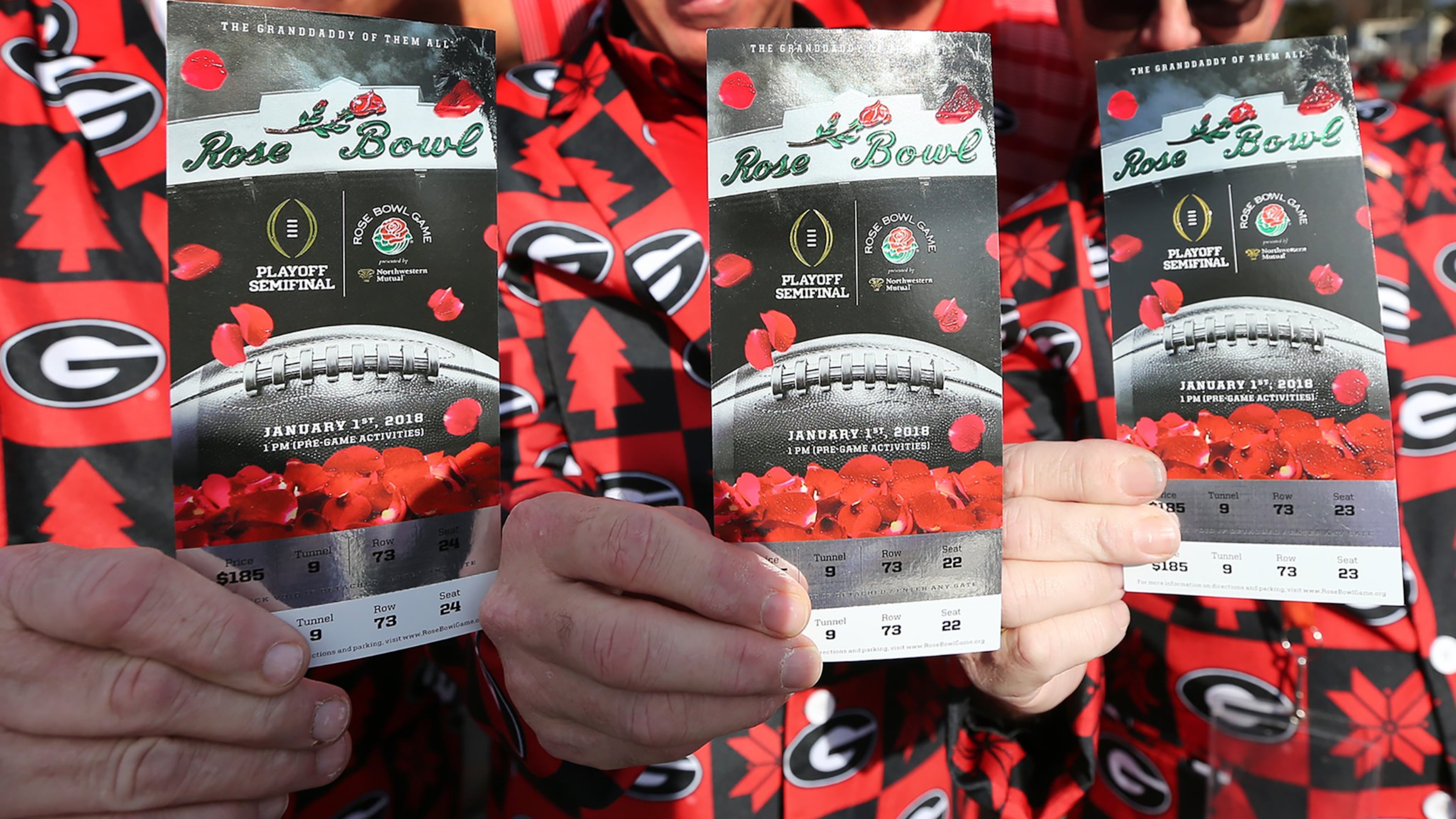Rose Bowl tickets were an easy get for some

Monday's Rose Bowl Game was the hottest Georgia Bulldogs football ticket in decades, and some prominent Georgians saw it in person for free.
The university invited about 180 people to the game, according to a spreadsheet The Atlanta Journal-Constitution received from UGA through a Georgia Open Records Act request.
The list included U.S. Rep. Buddy Carter, R-Pooler, House Speaker David Ralston, R-Blue Ridge, and state Senate Majority Leader Bill Cowsert, R-Athens. Georgia Attorney General Chris Carr was listed as a guest of his wife, Joan Kirchner Carr. Also on the list were several top higher education leaders, such as University System of Georgia Chancellor Steve Wrigley, his predecessor Hank Huckaby and eight current Georgia Board of Regents members.
Many of the names on the list were University of Georgia administrators, led by its current president, Jere Morehead. Several have relationships with political leaders or have served on state agencies.
UGA spokesman Greg Trevor said in a statement that the university used a standard process to determine who should get tickets.
“Several offices across campus identified key donors, supporters and other individuals who received complimentary tickets to the Rose Bowl,” Trevor said. “This practice is consistent with how the university develops guest lists for significant events in the life of the institution. Complimentary tickets for the National Championship game will be handled in a similar manner. These tickets are funded with private dollars, not taxpayer dollars.”
Trevor added that they were paid for by the UGA Foundation and the UGA Athletic Association, both nonprofits. Most tickets to the game were priced at $175. Trevor could not say if either group paid for travel for elected officials or Regents members to the game in Pasadena, Calif.
The Georgia Legislature passed a bill in 2014 that prohibited public officials from accepting free tickets, golf games and anything of value over $75 from lobbyists. Colleges and universities, though, do not have to register as lobbyists. The foundations are not part of state government.
Rick Thompson, former state ethics commission executive director, said he had several questions, such as the justification for elected officials to accept the tickets and how the tickets were distributed by the foundations to the university.
“I’ve got to think (elected officials who received tickets) vetted this,” he said.
Cowsert, who graduated from the University of Georgia’s School of Law, said he reimbursed the university for his two tickets to the game.
“We had a great time,” he said in a brief telephone interview Thursday.
Cowsert said he’s paid the university back for tickets when invited to Georgia games on its Athens campus.
Ralston’s spokesman, Kaleb McMichen, said in a statement the speaker and his son, Matt, both UGA alums, “attended the game at the invitation of the University of Georgia with the understanding that no taxpayer funds were expended.”
Regents spokesman Charles Sutlive said in a statement “we participate in athletics events to support our institutions and student athletes. Our athletic associations use private dollars to facilitate these activities with no taxpayer dollars used.”
This is the first season the Georgia Bulldogs have participated in the four-team college football playoffs. Georgia hadn't played in the Rose Bowl, among the most hallowed venues in college football, since 1943.
UGA received 13,000 tickets to the game. Most tickets were sold to season ticket holders. Five hundred were given free to students. The rest went to the guests of players and were distributed by administrators. UGA is following a similar practice for this Monday’s national championship game in Atlanta against the Alabama Crimson Tide.



